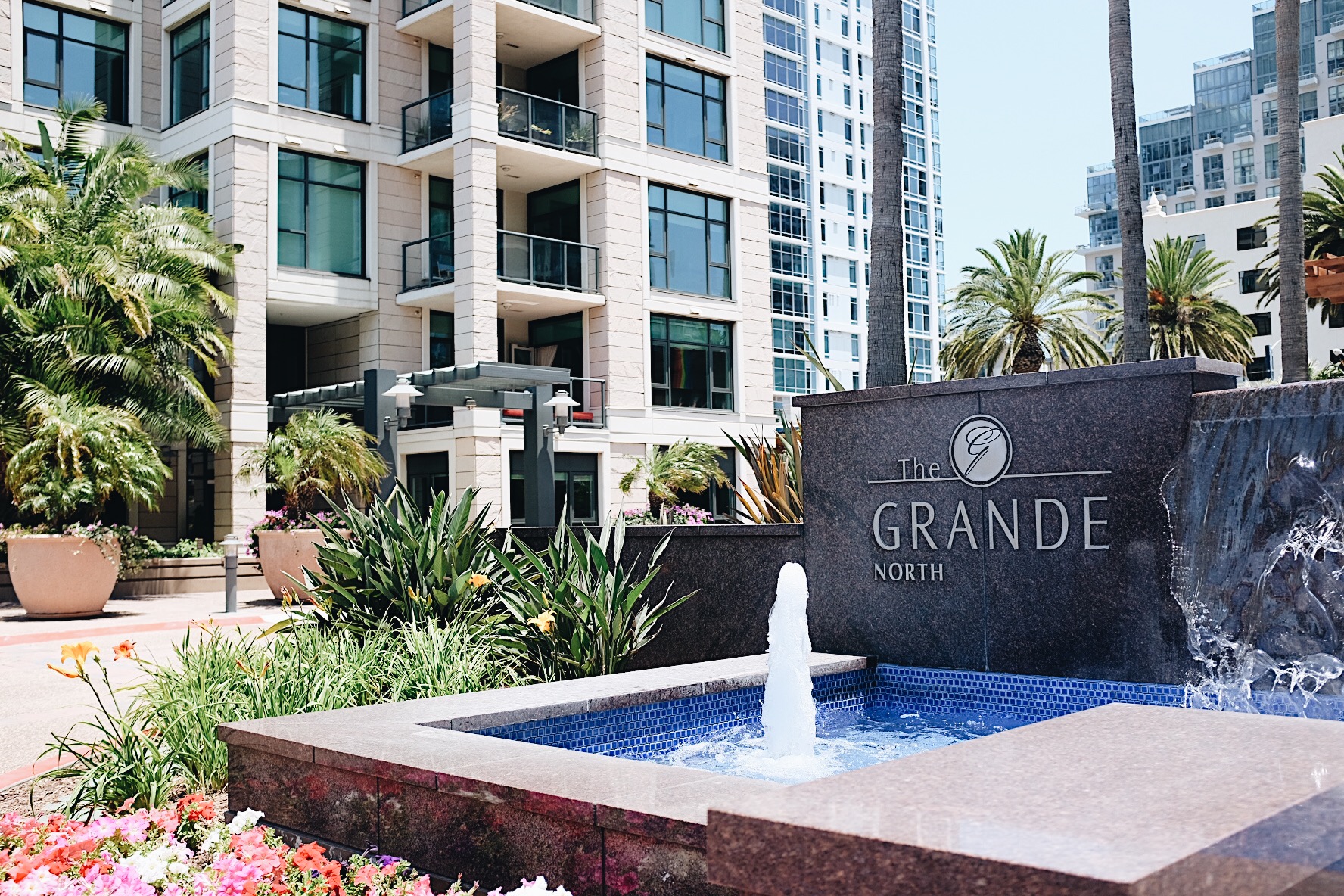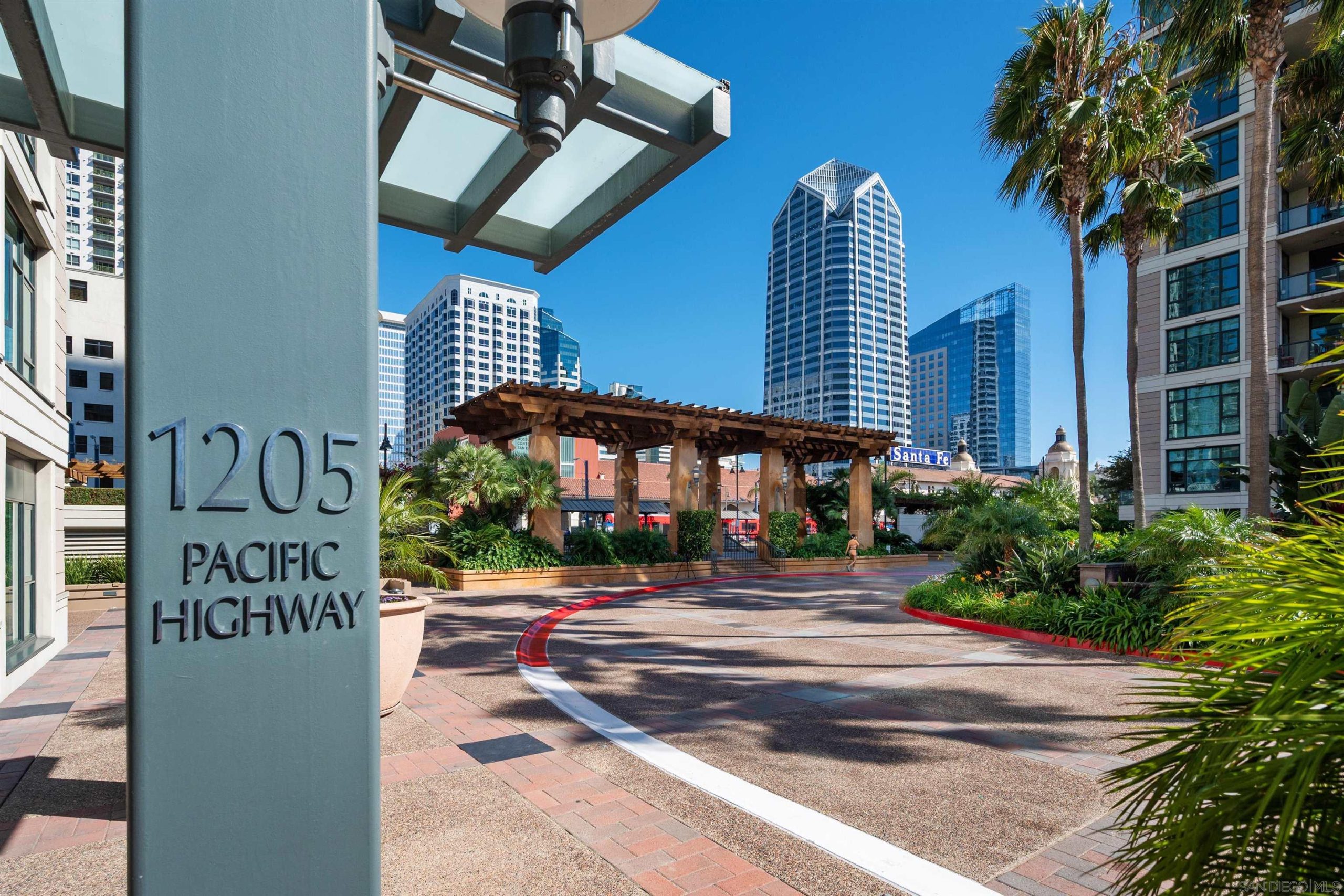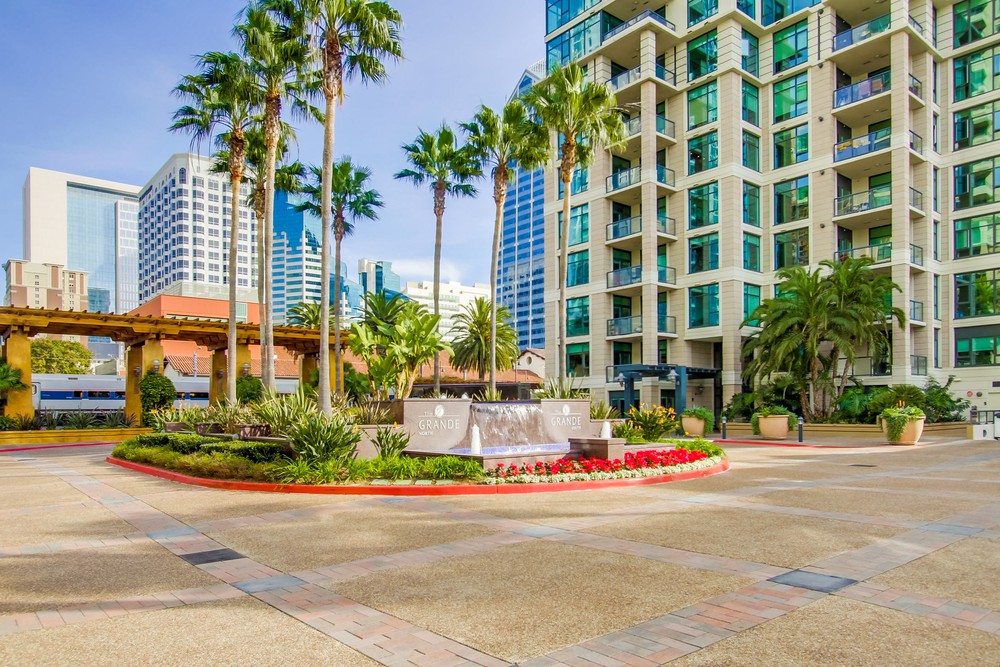Plumbing Recommendations
High-rise buildings have very complex and challenging plumbing systems. We have accumulated a few important topics that may help you prevent floods/water intrusion.
Exercising Shut Off Valve: The Units at The Grande North have one (1) “water shut off” valve in the ceiling, hidden by a ceiling access panel. The typical locations for these valves are: in the master bedroom closet or hallway closet. Most common fixture shut offs (angle stops): Toilet, sink, washer, shower.
Inaccessible water shutoff valves – You have to be able to turn off the water in an emergency to avoid costly building flooding and damage! We highly recommend walking your unit and accessing the ceiling panel/hatch and checking if your valve is reachable.
Leaking water shutoff valve – Should be replaced if your water shutoff valve is not working. This repair will require the water to be shut off in either your “stack” or “zone.” Please contact Management if this repair is necessary as we require at least 48 hours notice.
Partly-closed water shutoff valve – May result in poor water pressure or flow. After exercising the valves, please ensure they are fully turned back on.
Inoperative main water shutoff valve – This is perhaps the most common problem: Since these valves are not used regularly, it is common for them to become “stiff” or “frozen.” They often leak when operated. If you cannot turn the shutoff valve with a modest force, don’t force it – if you break the valve a plumbing leak may ensue. For this reason, residents should exercise the shut off valves at least twice-three times a year to ensure they do not “freeze.”
Turning water off: Turning the water shutoff valve “clockwise” or “to the right” (rightie tightie) closes the valve – turns off the water.
Turning water on: Turning the water shutoff valve “counterclockwise” or “to the left” (leftie loosie) opens the valve – turns on the water supply.
Drain & Sewer Lines: What is a drain line? Drain lines are plumbing lines located inside of your home that are connected to your plumbing fixtures such as toilets, sinks, showers, washers and other water-using appliances. Their sole function is to funnel dirty or used water from the fixture to the sewer pipe and on to the wastewater treatment plant. High-rise buildings have very complex and challenging plumbing systems that are very different from those of a regular residential home. Our common sewer lines run vertically through the stacks with each unit connecting at their level. A blockage in this common line can then result in a backup into a unit or units above the blockage.
Who’s responsible for the drain lines? Condominium plumbing systems are divided into HOA common pipes and Owner-owned pipes. Owners are responsible to maintain, repair and replace the utility systems, lines, pipes, conduits and other equipment servicing the Unit and located either within or without the outside perimeter of the exterior walls, floors, or ceilings so long as those systems are used exclusively by the Owner and not in common. (CC&Rs: Article 8). Owners are responsible to clear obstructions and keep clear, at the Owner’s expense, any sewer or drainage lines exclusively servicing the unit.
What can you do to assist and do your part?
Toilet(s): Avoid flushing items other than those intended for use with the toilet. Common items that should not be flushed include cat litter, paper towels, wet wipes, feminine hygiene products, and facial tissues.
Garbage Disposal / Sink: Limit the items you put down the drain! Please avoid placing fibrous fruits and vegetables, coffee grounds, eggshells, pasta, rice, oatmeal, fruit pits, seeds, bones, seafood shells, grease and cooking oils, or harsh chemicals down the drain. Each of these items present a hazard by either causing a blockage in the sewer line or causing actual damage to the pipe itself.
Shower / Bathtub: Similar to sinks, the only items going down your drain should be soap, shampoo and water. Unfortunately, the main culprits that lead to a slow or clogged drain in showers/bathtubs are inevitable: soap scum, conditioner scum, dead skin, etc. Another main cause for clogged drains is hair buildup – try using a shower/tub drain strainer to catch the hair! Unfortunately, these substances naturally build up over time, eventually coagulating and sticking to the walls of the pipes until a blockage gets so large that it impacts the flow of water.
Avoid: Chemical Drain Cleaners such as Drano, Liquid Plumr, etc.
Use: Other high-rise Associations have recommended non-acidic or Alkaline based drain cleaners. The Grande North HOA sells “Thrift Drain Cleaner,” a non-acidic drain cleaner, for $9!
Laundry/Washer: Double check your soap/detergent/other washing machine safe items to ensure that they do not have harsh chemicals. When doing loads of laundry, make sure that you are placing the recommended amount of soap and detergent in your washer. Avoid doing “large” loads of laundry as an excessive amount of clothes in a washer can not only damage your exclusive-use washer, but can also create a backup or flood. Washers pump out significant water volume, which can ultimately overwhelm the capacity of the drain, forcing water to back up and overfill the machine.
Low water pressure or no hot water? = Cartridges, Filters, Aerators
Is it time to replace your cartridge, filter, and/or aerator whether that’s in your shower, bathtub, or faucet? Due to the building’s age and debris in the building’s water, many of these items can fail. This can cause a fluctuation in heat and/or water pressure throughout your entire, exclusive unit.
Some manufactures like Kohler provide a lifetime warranty on its products, and parts like Cartridges can be obtained free of charge. If unable to obtain a cartridge through the manufacturers, please call your preferred plumbing company as many obtain and install the cartridge all at once!
If you need any information on parts, please contact the Front Desk or Management office to obtain the information and we will be happy to help! For a list of preferred plumbers/vendors, please contact the Front Desk at 619-238-8117.
Check for water & moisture: Whether it’s plumbing or weather water intrusion, here are a few ways to check for moisture.
- Periodically inspect your walls, floors, windows, door seals and patios.
- Look for signs of damage in your window seals, ceilings, walls, etc. If caught early enough, you may be able to dry out the wet materials and repair only the affected area.
- Making sure your balcony drain(s) function properly as it is critical to protecting your home and others from water damage. If your drains are full of leaves or debris, then water may accumulate and not drain properly, causing a flood in your home. Start by clearing built-up gunk from your drains.
HVAC: This equipment in your home can be a source of water leaks in condos and flooding to other Units. Now is your chance to help protect yourself and others from water damage.
The equipment that cools and heats your condo is commonly called “HVAC”—“Heating, Ventilation and Air Conditioning.” Why does this matter? Because it’s not air from equipment (an “air conditioner”) that cools (and heats) your condo, it’s WATER.
In addition, attached under your heat pump is a shallow “condensate drip pan” with a small drain hole in it to a tiny drain line to many other heat pump pans above and below you. Condensation moisture drips into this pan and, ideally, drains out. Over time, however, bits of debris can gather in this tray and algae also can form and grow, which clog the narrow drain. Water can back-up and overflow the pan onto the closet floor and potentially onto units below. Gravity Rules!










